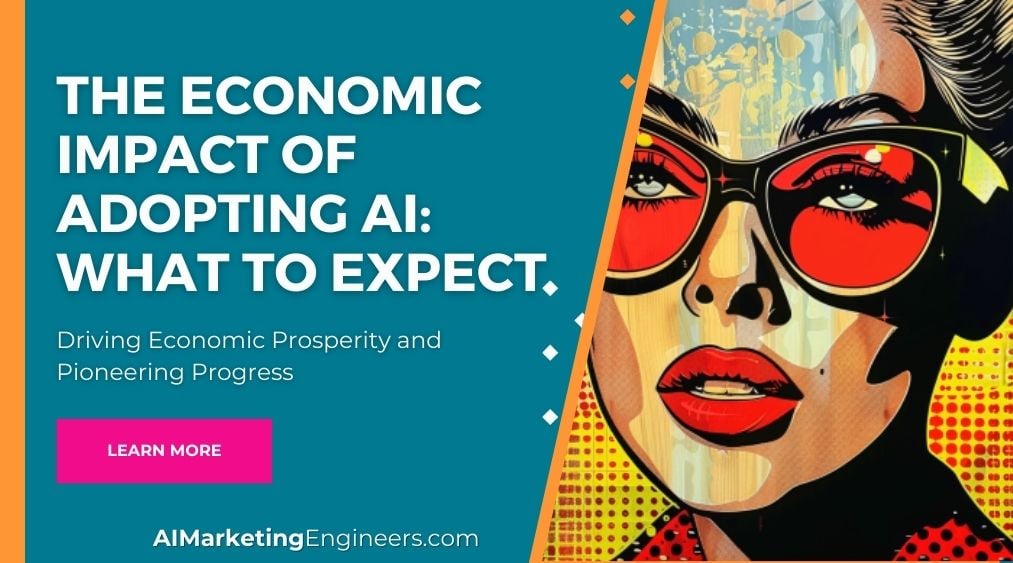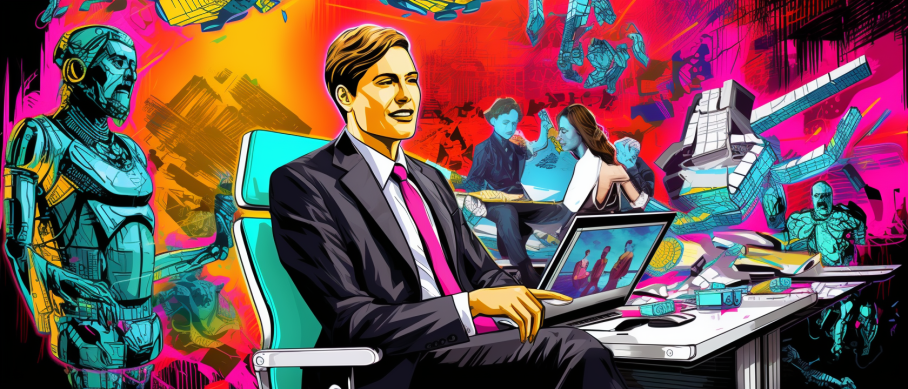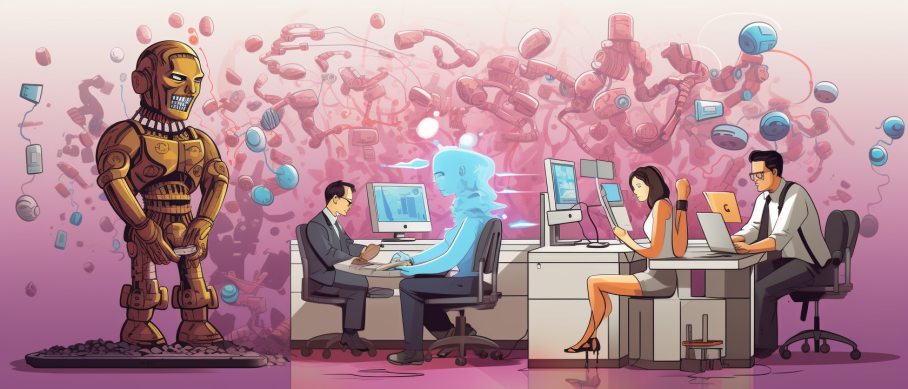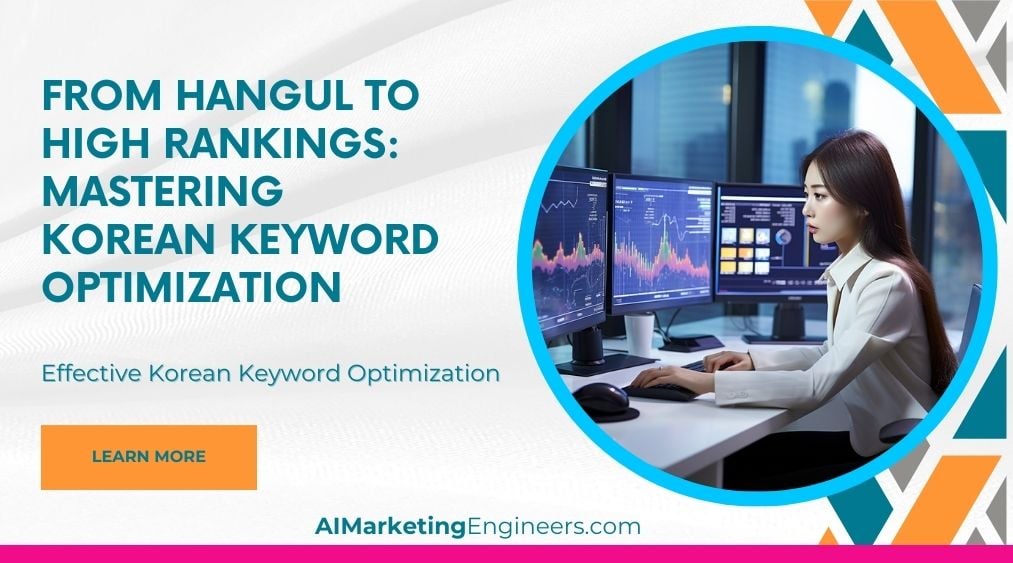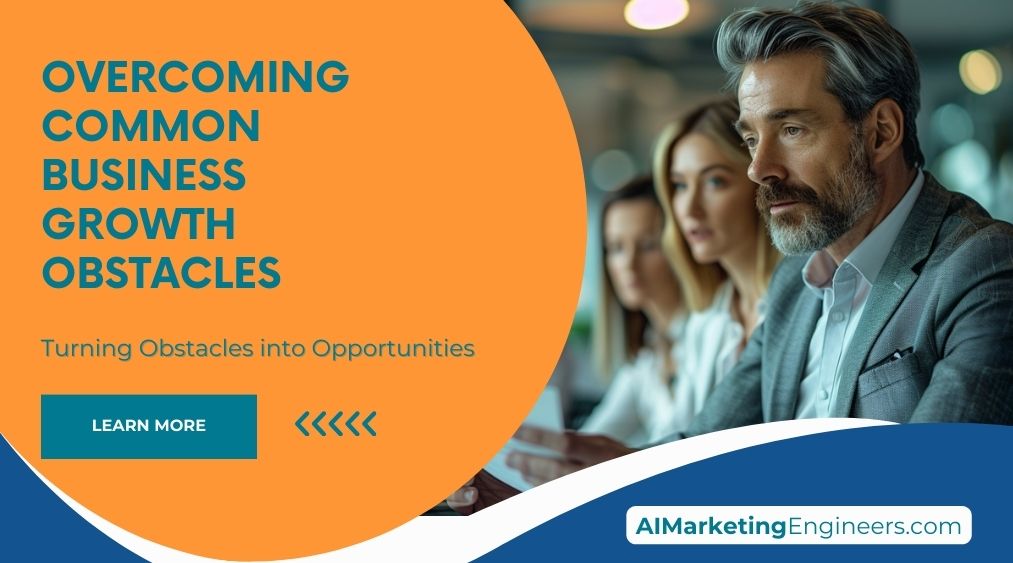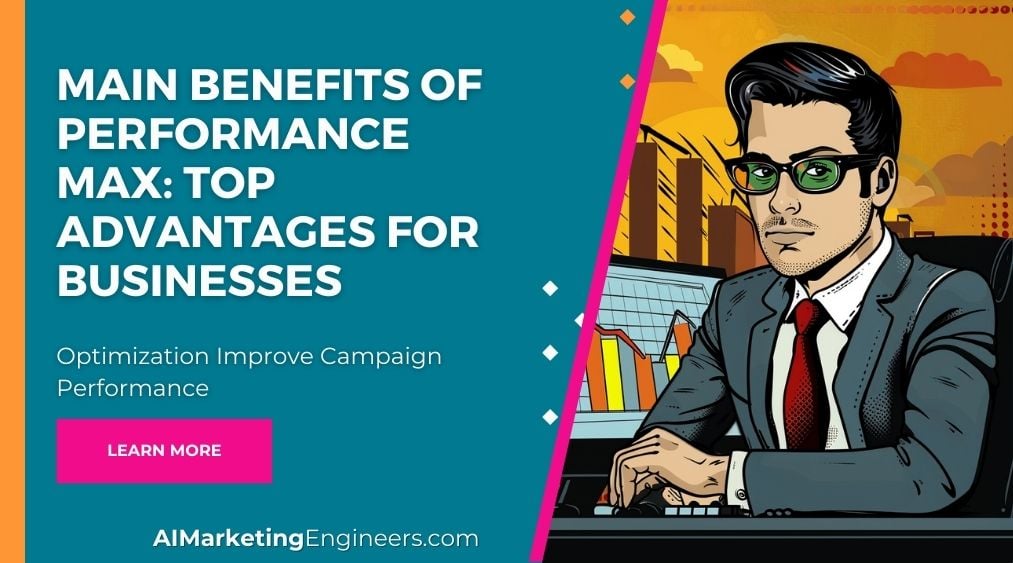Key Takeaways
✅ Increased Productivity and Efficiency: Imagine your business but faster and smarter. That's what AI can do—streamline operations, from automating the mundane to crunching complex data in a snap. It's not just about working harder, but smarter, giving you and your team the space to focus on what humans do best—innovate.
✅ Job Displacement and Skill Transformation: Sure, AI might nudge some jobs off the picture, but don’t fret! It's equally creating new roles and opportunities that were once stuff of sci-fi novels. The key? Adaptation. By learning new skills and embracing change, there's a world of possibilities awaiting.
✅ Economic Growth and Innovation: Imagine a world where every day feels like a tech expo, thanks to AI sparking a cascade of breakthroughs across industries. Companies are not just adapting; they're creating, transforming, and leading the charge towards a wealthier, more innovative tomorrow.
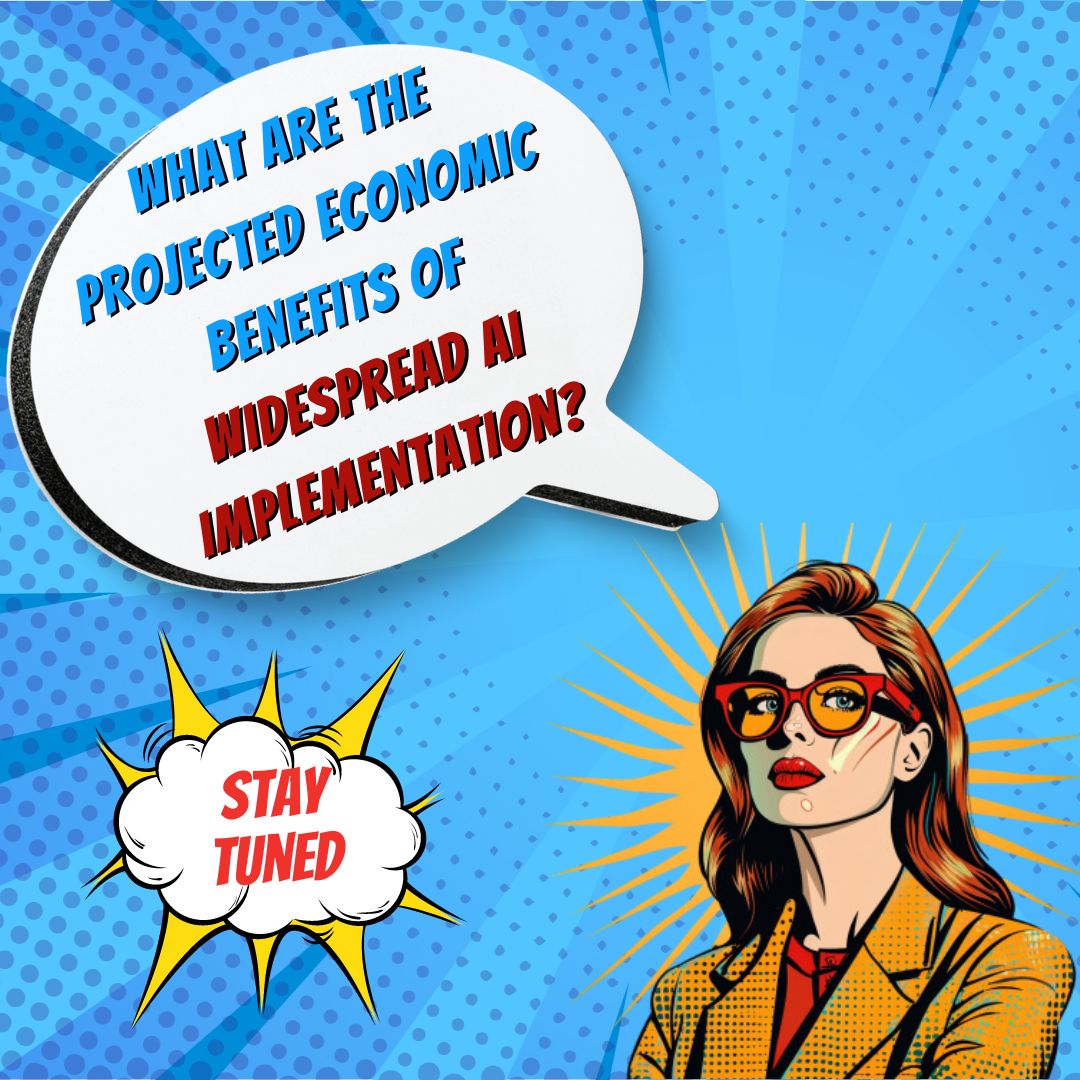
Introduction
Have you ever wondered just how much of a game-changer AI could be for the economy? Or felt a twinge of worry about what an AI-powered future means for your job? Let’s walk through this together. With AI’s reach stretching further into our work and lives, it’s crucial to take a step back and see the big picture. And that's what we're doing today: peeling back the layers of The Economic Impact of Adopting AI. But this isn't just about broad strokes and vague predictions—we're getting into the nitty-gritty of how AI can shape industries, transform jobs, and potentially supercharge the economy. Craving a sneak peek into how AI might make your business or career soar—or tips on staying afloat in this tidal wave of innovation? Stick around. We've got insights and strategies that could turn the tide in your favor. Get ready to delve into the unexpected twists and mind-broadening shifts AI is bringing to our economic landscape.
Top Statistics
| Statistic | Insight |
|---|---|
| Global AI Market Growth: Expected to surge from $38.8 billion in 2021 to $309.6 billion by 2026, at a CAGR of 39.7%. | This exponential growth sketches a future where AI is the central player in driving business evolution across industries. |
| AI in Enterprises: 86% of companies are at various stages of AI adoption, with 51% already implementing AI solutions. | This prevalence among companies indicates a trend towards a smarter business ecosystem, keen on efficiency and innovation. |
| AI in Healthcare: The market is on track to hit $67.4 billion by 2027, growing at a CAGR of 41.8%. | In healthcare, AI's role is not only about efficiency; it's about life-changing outcomes and accessibility to personalized care. |
| AI in Finance: The niche is set to grow to $32.3 billion by 2026, at a CAGR of 23.1%. | AI's influence in finance spotlights the industry's shift towards more secure and intuitive customer experiences. |
| AI in E-commerce: Expected to reach $23.2 billion by 2026, with a CAGR of 29.9%. | A statistic that clearly defines AI as a game-changer in how we shop online, from personalized recommendations to seamless customer service. |
AI and Productivity Gains
Have you ever wondered how your smartphone gets smarter or how your mail filters out the junk so well? That's Artificial Intelligence (AI) in action, working behind the scenes to make things more efficient. As AI spreads its wings across various industries, you can expect productivity to shoot up. Think robots on a manufacturing line or software that can analyze legal documents in minutes, not days. This boost isn't just about doing things faster; it's about freeing up people to focus on more complex tasks, which could indeed lead to a healthier economy. However, there's a catch: as machines get better at jobs that humans used to do, labor markets are feeling the pinch. In the back of our minds, we're all asking: What happens to the workers?
Job Displacement and Creation
The big question on everyone's lips is this: Will robots steal our jobs? Sure, automation might mean certain roles will become less common, job displacement is a concern that needs our attention. But before we get all doom and gloom, let's remember that with change comes new opportunity. AI could be the golden ticket to creating fresh industries and jobs that we can't even imagine yet. It's about staying optimistic and getting ahead of the curve with reskilling opportunities. Of course, we need to keep things in check with a balanced approach to AI adoption – nothing too hasty, ensuring people aren't left behind in our stride towards the future.
Economic Growth and Innovation
Speaking of strides, AI is taking big ones in the realm of economic growth and innovation. By stirring the innovation pot, AI could serve up a host of new products, services, and even entire markets that were previously the stuff of science fiction. Companies and industries at the forefront are already setting the stage, showing the world what's possible with a little AI ingenuity. The buzz is about more than just gadgets and gizmos—it's about meaningful changes to our everyday lives and a potential economic boom waiting just around the corner.
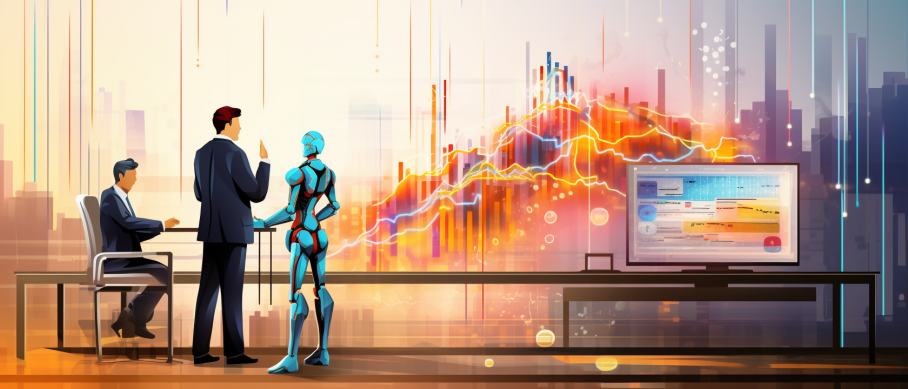
Challenges and Risks
Now, hold your horses. Before we gallop into an AI-driven sunset, let's talk about the challenges and risks. We can't ignore the elephant in the room: data privacy. Then there's the conundrum of security and the ever-looming specter of algorithmic bias – when AI makes decisions that inadvertently discriminate. Addressing these issues is crucial, not just to keep our digital lives safe, but also to ensure AI plays fair. Nobody wants a future where our digital co-workers have a hidden agenda. So, the big question is, how do we foster responsible and ethical AI development and implementation?
Government Policy and Regulation
That’s where government policy and regulation come into play. You might think, "Ugh, regulations," but hear me out. We need a touch of guidance to make sure this AI adventure benefits everyone. Policies and regulations are like the safety gear of AI – they’re there to protect not just the daredevils on the cutting edge but also the everyday Jane and Joe. Smart rules can fuel innovation while also ensuring workers aren't left in a lurch and consumers aren't treated like guinea pigs. Some countries are already setting a shining example for others to follow.

AI Marketing Engineers Recommendation
Recommendation 1: Invest in AI to streamline customer experiences: Data is pretty clear on this: consumers are embracing AI-powered solutions. Look around; chatbots are handling queries swiftly, personal shopping assistants are becoming the norm, and recommendations are getting eerily accurate. People value their time, and AI is chopping wait times left and right. Your takeaway? Get in on the AI action. Use it to make your customer service smoother, faster, and smarter. Happy customers often come back, and they bring friends.
Recommendation 2: Use AI for predictive analysis to stay ahead: Trends aren't just fancy talking points; they're goldmines waiting to be discovered. And guess what's great at predicting trends? AI. Market leaders are using AI to sift through mountains of data to pinpoint what's going to be hot tomorrow, next week, or next year. By analyzing past consumer behavior and market shifts, AI can give you a roadmap of where to go next. You want to be the one setting the pace, not panting to keep up, right? Use AI to know what your customers will want before they do.
Recommendation 3: Embrace AI tools for cost reduction and operational efficiency: Operational costs—sounds dreary, but they can be a tough nut to crack. Now, AI tools, they're the shiny new wrench. They're wrenching away inefficiencies and leaving streamlined processes in their wake. From inventory management, supply chain logistics, to energy consumption, implementing AI can lead to substantial cost savings. And when you save money, you can either pocket it or reinvest in growing your business. Either way, it's a win. So, find the right AI tools for your operations and tighten those bolts.
Relevant Links
Maximize Your Online Earnings: Affiliate Marketing Guide 2024
Unlock Passive Income Success with Affiliate Marketing
ChatGPT Marketing: Unleash Your Content Potential
Revolutionize Your Content Strategy with ChatGPT
AI-Powered Efficiency: Boosting E-commerce Like Never Before
The Power of AI: Transforming E-commerce Marketing
Google Ads with AI: The Secret Weapon for High Conversions
AI-Enhanced Google Ads for Unparalleled Results
Navigate Digital Marketing Trends with Expert Insights
Stay Ahead of the Curve: Top Digital Marketing Trends for 2024
Ethics in AI Marketing: Navigating the New Frontier
Ensuring Fair Play in AI Marketing
SEO and PPC Combined: AI's Impact on Marketing Strategy
Harmonizing SEO and PPC with AI for Marketing Success
Embrace AI for Small Business: Strategies for Growth
ChatGPT: The Small Business Partner for Growth
Conclusion
We've wandered quite a bit through the land of AI, haven't we? From those whispers of productivity gains that can fundamentally change industries to the real talks about jobs—yes, the ones we're a bit scared of losing and the ones we can't yet imagine. We pondered how balancing innovation with caution is not just wise but necessary. And let's be honest, at the back of our minds, questions loom: Will my job be there in ten years? How will businesses change their course? What role will governments play?
So, what's the bottom line here? Look, AI is here to stay, and it promises big things—growth, innovation, efficiency. But with such power comes the need for wisdom and care. The spotlight’s now on the need for mindful policies and regulations, not just for the sake of progress but to safeguard our future work-life and our community ethics.
Think about it—could this be the moment where we get to reshape our work lives for the better? Where new opportunities could spring up from the soil of innovation? Are you ready to evolve with AI, maybe even lead the way? It's not only about what AI can do; it's also about what we choose to do with it.
As we wrap up, ask yourself: How can I be part of this AI journey? Whether you're in business, governance, or just watching from the sidelines—it's time to dive in, get informed, and engage. After all, the future isn't just written by AI; it's written by us.
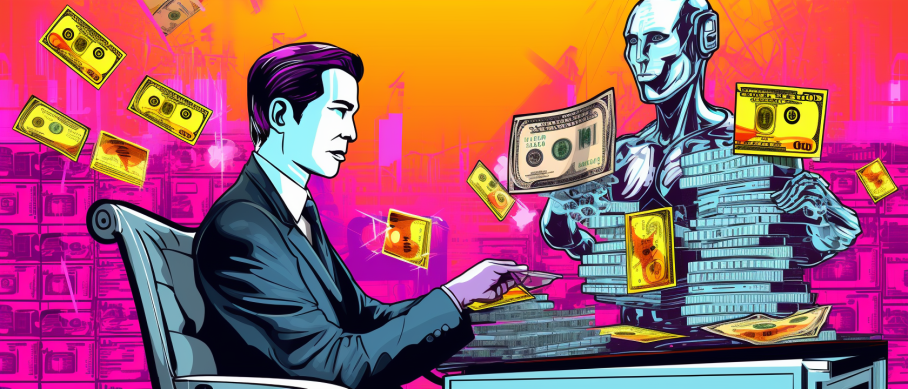
FAQs
Question 1: What is the economic impact of adopting AI technology?
Answer: AI adoption can lead to increased productivity, efficiency, and competitiveness, ultimately boosting economic growth. However, the impact varies across industries and regions, and it can also lead to job displacement and skill gaps.
Question 2: How does AI adoption affect employment?
Answer: AI adoption can automate routine tasks, leading to job displacement in some sectors. However, it can also create new job opportunities in fields like AI development, data analysis, and AI management. The overall net effect on employment remains a topic of debate among economists.
Question 3: What industries are most impacted by AI adoption?
Answer: Industries that rely heavily on data and automation, such as finance, healthcare, manufacturing, and transportation, are likely to be most impacted by AI adoption. These industries can benefit from increased efficiency, improved decision-making, and cost savings.
Question 4: How can businesses prepare for the economic impact of AI adoption?
Answer: Businesses can prepare for AI adoption by investing in AI-related skills and technologies, retraining their workforce, and adopting a flexible and adaptable business model. They should also consider the potential ethical implications of AI and develop responsible AI strategies.
Question 5: What are the potential risks and challenges associated with AI adoption?
Answer: AI adoption can lead to job displacement, skill gaps, and potential bias in decision-making. There are also concerns about data privacy, security, and the potential for AI to exacerbate existing inequalities. Businesses and policymakers must address these challenges to ensure that AI adoption benefits society as a whole.
Question 6: What is the role of government in promoting AI adoption?
Answer: Governments can play a crucial role in promoting AI adoption by investing in research and development, providing incentives for businesses to adopt AI, and developing policies that protect responsible AI use. They can also support retraining programs to help workers adapt to the changing job market.
Question 7: How can small businesses benefit from AI adoption?
Answer: Small businesses can benefit from AI adoption by using AI-powered tools to improve their operations, reduce costs, and enhance their competitiveness. They can also leverage AI to better understand their customers and personalize their products and services.
Question 8: What are the key trends in AI adoption?
Answer: Key trends in AI adoption include the increasing use of AI in healthcare, finance, and manufacturing, the development of AI-powered personal assistants and chatbots, and the growth of AI-as-a-Service (AIaaS) platforms that make AI more accessible to businesses of all sizes.
Question 9: What are the ethical considerations associated with AI adoption?
Answer: Ethical considerations associated with AI adoption include the potential for bias in decision-making, the need to protect data privacy, and the potential for AI to exacerbate existing inequalities. Businesses and policymakers must address these concerns to ensure that AI adoption benefits society as a whole.
Question 10: What resources are available for individuals and businesses interested in learning more about AI adoption?
Answer: Individuals and businesses interested in learning more about AI adoption can access a wealth of resources, including academic research, industry reports, online courses, and professional organizations dedicated to AI and its economic impact.

Academic References
- PwC. (2018). The Economic Impact of Artificial Intelligence on Society and Work. This comprehensive report by PwC forecasts that by the year 2030, artificial intelligence could pump up the global economy to the tune of $15.7 trillion, banking on monumental productivity and efficiency gains. However, it doesn't shy away from the big questions - what about the people whose jobs might be swallowed up by AI? How do we equip our workforce with the new skills that will be in demand?
- Brookings Institution. (2018). The Economic Implications of Artificial Intelligence. The Brookings Institution gets down to brass tacks discussing how artificial intelligence is not just some distant future; it's here, and it's reshaping economies. It talks productivity booms, jobs on the line, and echoes the rallying cry for upskilling. The paper plants the seeds for a debate on how education, research, and infrastructure are key to riding the AI wave.
- International Monetary Fund (IMF). (2019). The Economic Impact of Artificial Intelligence on Labor Markets. The IMF dives into the gritty details of AI's impact, pulling apart threads like job displacement, wage gaps, and that all-important need for reskilling. It's not all doom and gloom, though; the paper hammers home the point that with the right policies, there's a clear path toward inclusive growth that benefits everyone.
- European Parliament. (2019). The Impact of Artificial Intelligence on Economic Growth and Employment. The halls of the European Parliament have ringed with discussions of AI's economic impacts - and this report lays it all out. Will there be productivity windfalls, a shaken job market, and a hunger for new skills? Yes, says the report, but it's also a loud cheerleader for supportive, growth-fostering policies.
- National Bureau of Economic Research (NBER). (2018). The Impact of Artificial Intelligence on the Labor Market. The NBER paints a vivid picture of the AI landscape and its economic shockwaves. With job displacement and unequal wages as potential side effects, this paper isn't just a sobering read; it's a clarion call for policies that prop up workers and ensure that growth includes everyone, not just the few.
